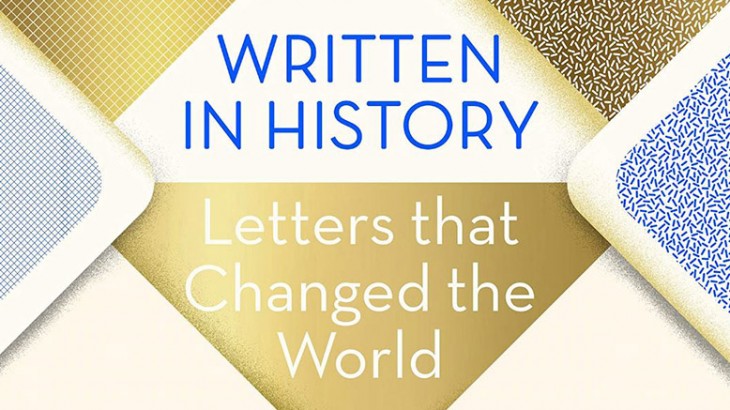Written in history

While our business continues to change, letters are still very important to us and will remain so in the future.
Today, we still deliver almost 13 letters for every one parcel, and the UK sends more letters per head than anyone else in Europe, bar Germany.
The impact letters have had on society can never be denied, as a fascinating new anthology from historian Simon Sebag Montefiore reminds us. Written in History -Letters that changed the world, published by W&N, is a collection of letters that the acclaimed historian believes have changed the world. His selection spans from ancient times right up to the present day, and includes letters penned by Rameses the Great, Elizabeth I, Stalin and Nelson Mandela.
The book provides an extraordinary and candid peak into the intimate thoughts of people who have shaped civilisation, while Montefiore’s commentary shows why these letters had such an impact.
‘Nothing beats the immediacy and authenticity of a letter,’ he tells us. ‘Letters are the literary antidote to the ephemerality of life and, of course the flimsy fitfulness of the internet. While the surfer of the internet feels more alone than ever amidst invisible millions, the writer of a single letter to a correspondent is never lonely.
‘Letters are returning to favour among those looking to be more discrete in their communication, people are starting to use pen and paper again, especially in government: letters can be preserved, but ironically, they are safe, because they exist only once and can be physically destroyed. So many things are achieved through the medium of letters and we celebrate them all here. These are chosen not just because they are entertaining, but because they somehow changed human affairs, whether in war or peace, art or culture. They grant us a glimpse into fascinating lives, whether through the eyes of a genius, a monster or an ordinary person.
‘May this anthology encourage you to write your own letters, inspired by the brilliance of these examples of the art.’
They are a mixed bag, and many are not for the faint hearted. While some are exquisite works of literature, others are unsettling, brutal and coarse. But everyone illustrates the power of a letter.
Take the letter sent to the Women’s Social and Political Union sent from Emmeline Pankhurst in the middle of the female suffrage movement. Her call to action places responsibility on recipients in an inspirational way: ‘To be militant in some way or other is a moral obligation. It is a duty which every woman will owe to her own conscience and self-respect…’
Elsewhere, a welcome letter to Bill Clinton from departing US President George Bush senior shows a magnanimity few would expect from cut-throat modern politics. It includes some sage advice: ‘There will be tough times, made even more difficult by criticism you may think is not fair. But just don’t let the critics discourage you or push you off course.’
The book also includes letters between Hitler and Mussolini: ‘England has lost this war… she grasps at every straw’ and Donald Trump to Kim Jong Un: ’You talk about your nuclear capabilities, but ours are so massive and powerful that I pray to God they will never have to be used.’, along with almost 100 other deeply personal perspectives.
Working in a business so close to letters, it is easy to forget how they have indeed shaped humanity. This book is a great reminder of just that.
We have a few copies of the book to give away. For your chance to win one, tell us in fifty words or less why you think letters are still important in the modern world. Send your thoughts to groupcommunications@royalmail.com.



